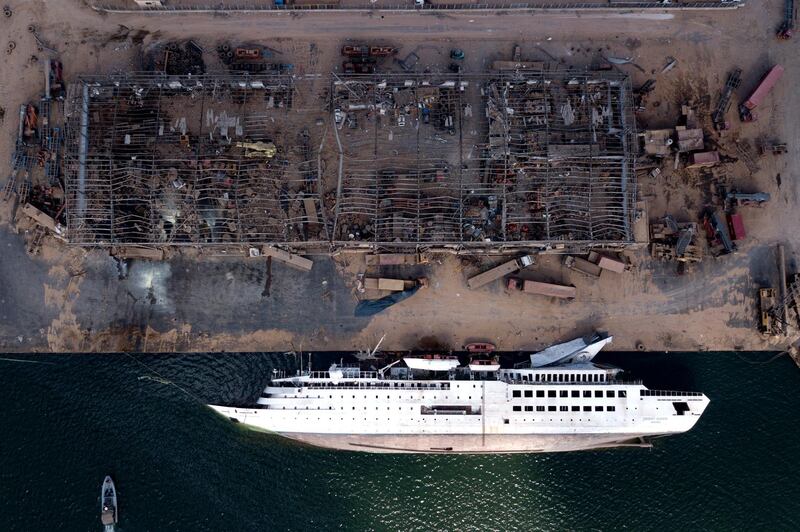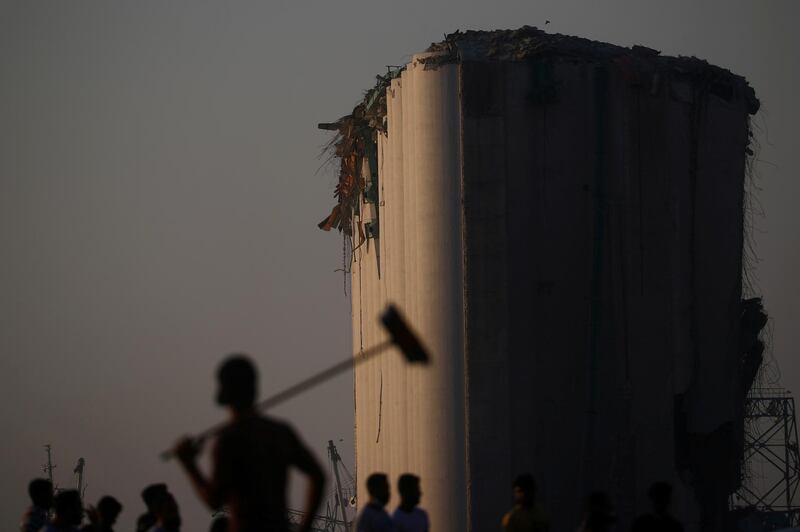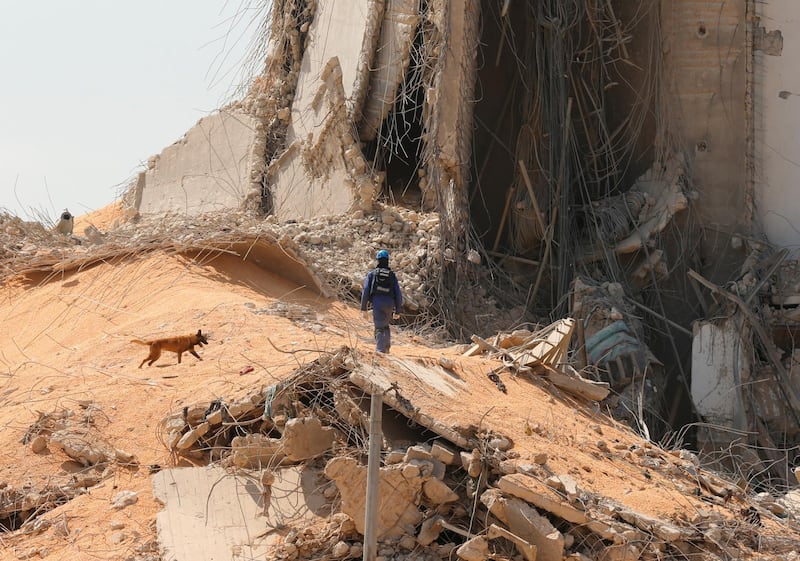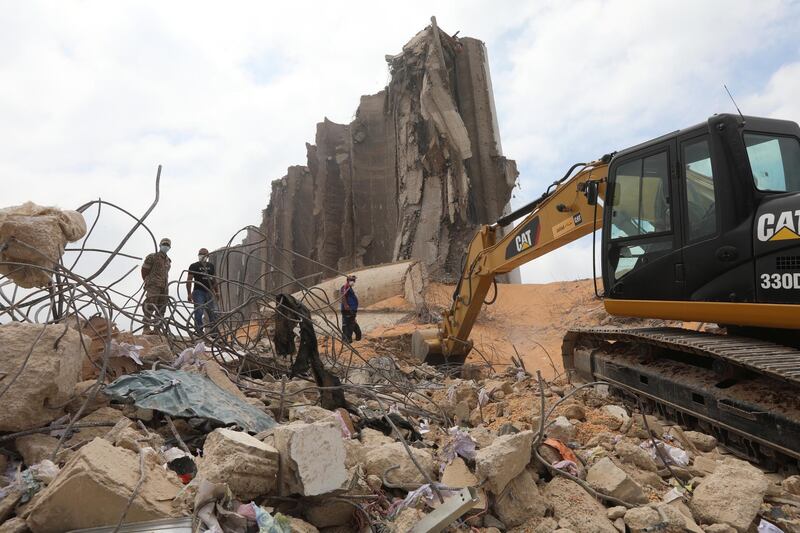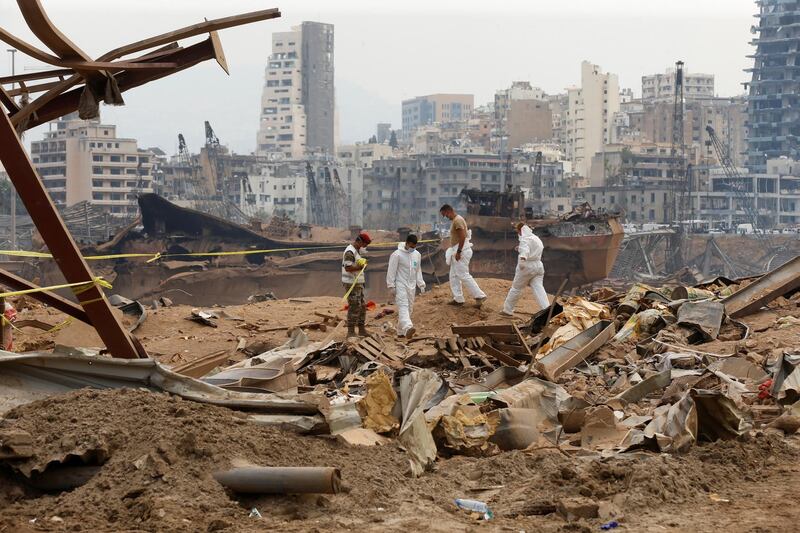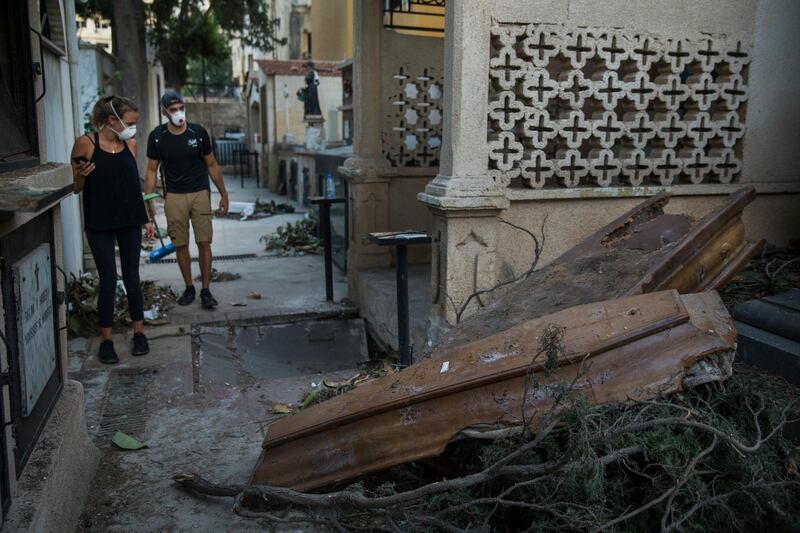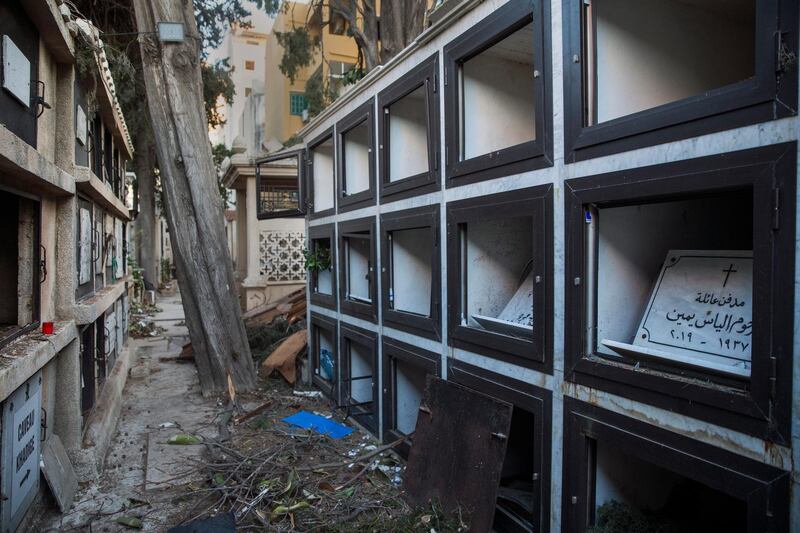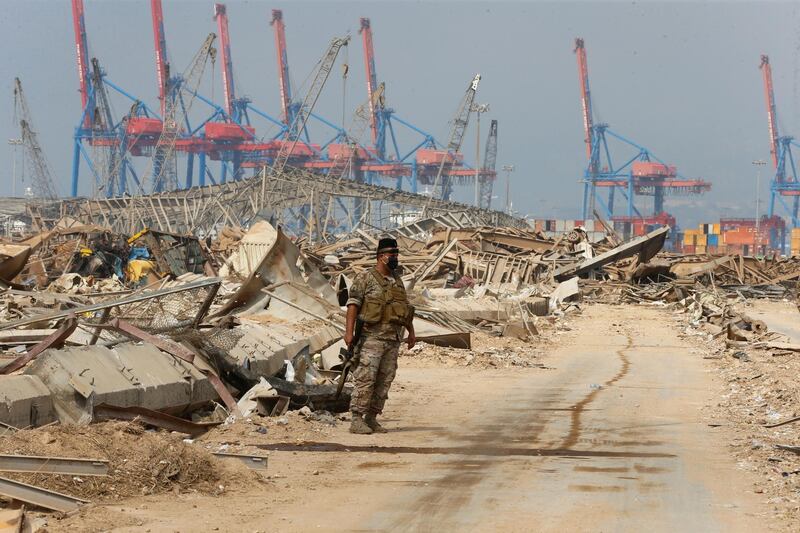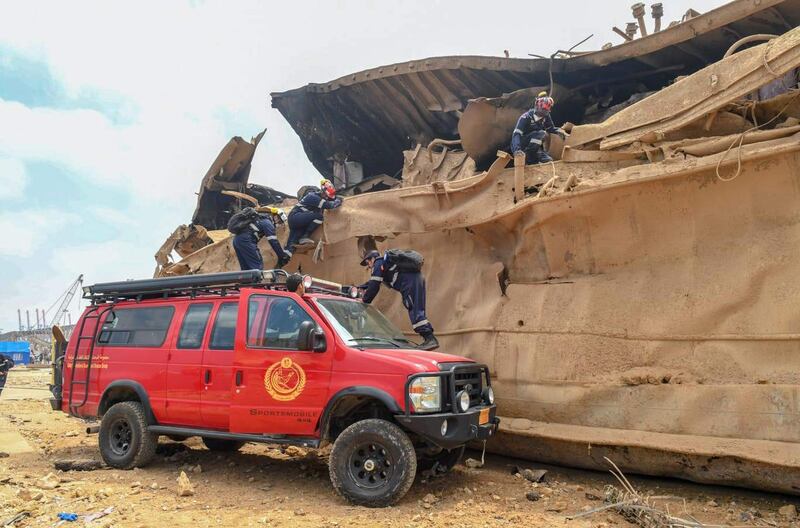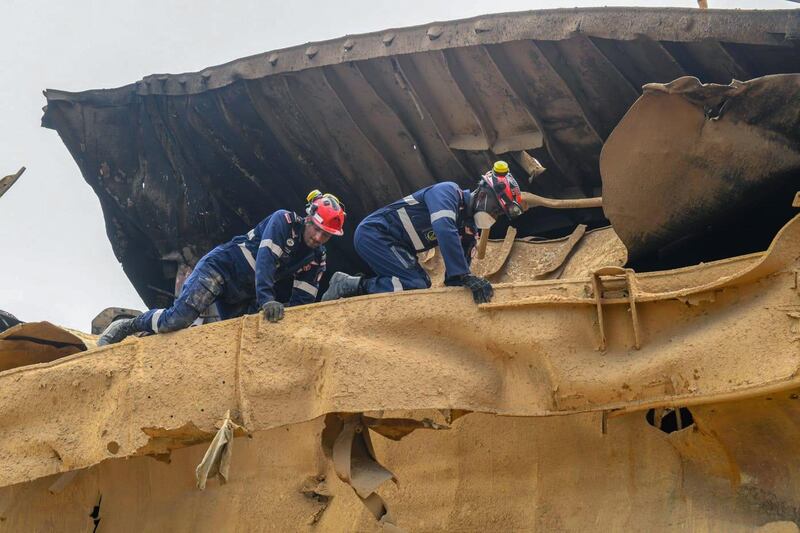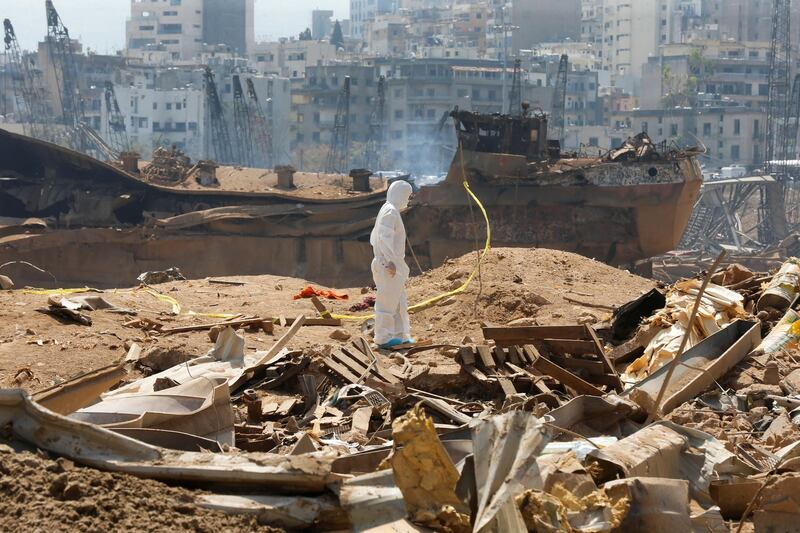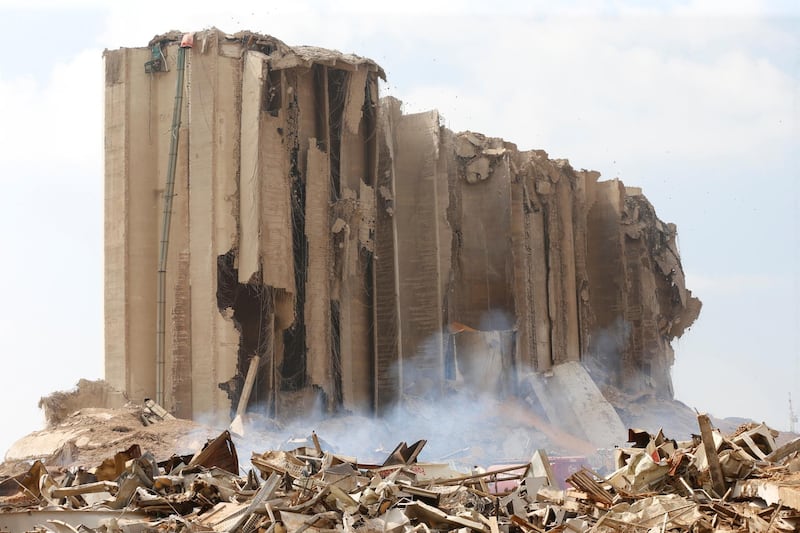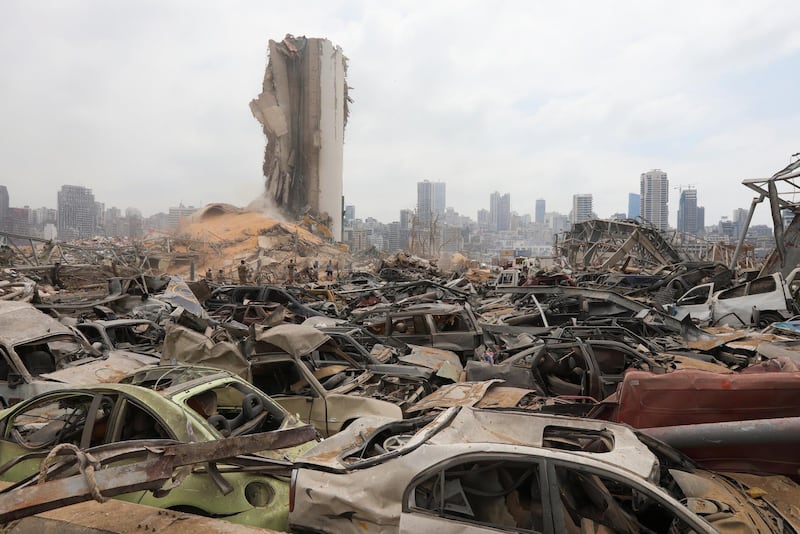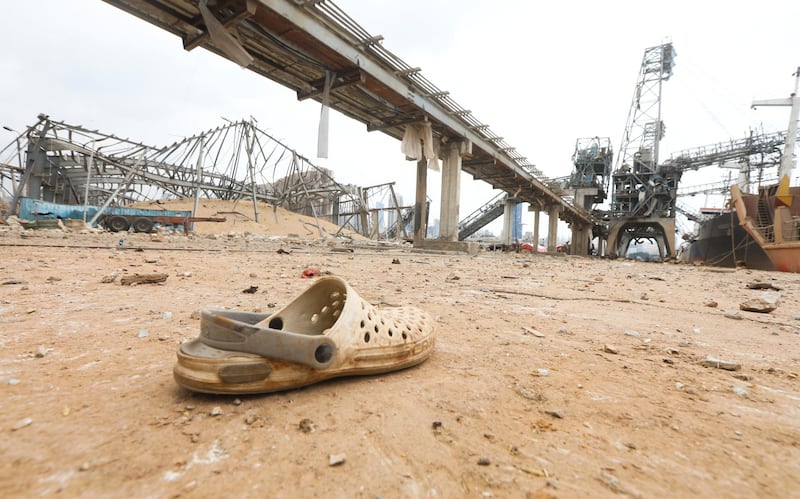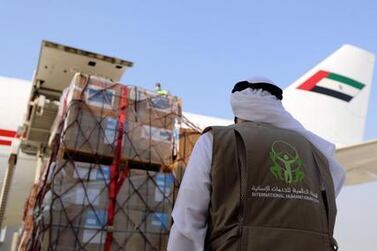The Beirut port explosion has been called a “significant loss event” by insurance insiders who believe the bill is likely to exceed $3 billion (Dh11.02bn).
As the massive clear-up operation continues in the Lebanese capital, major reinsurance companies are investigating the cost of the catastrophe caused by the explosion of 2,750 tonnes of ammonium nitrate last week.
The blast ripped through central Beirut, damaged buildings up to 7 kilometres away and destroyed large parts of the port. At least 171 people were killed and 6,000 injured.
Commercial properties including hotels and restaurants will account for a large number of insurance claims and Lebanese officials have reported economic losses of $15bn, most of which is uninsured.
A source at a prominent reinsurance company said that payouts were on the way despite fears that the cause of the explosion could mean liability was avoided.
"While it's still too early to quantify the financial cost of this tragedy, we would class this is as a 'significant loss event' in the insurance industry," the source said.
"But it's not one that's going to considerably destabilise the insurance markets, the main reason being that there is not a huge amount of 'insurance penetration' in Lebanon."
The chief executive of Munich Re, one of the world’s top reinsurance companies, agreed.
“We are assuming that Beirut will be a major loss for Munich Re," Christoph Jurecka said.
"But please understand that we cannot say anything at the moment as to the magnitude, so soon after the event.”
A Munich Re spokesman said a “major loss” referred to anything greater than €10 million (Dh43.3m).
It was too early to comment on the amount and share of Munich Re’s exposure, he said.
Sven Althoff, of Hannover Re reinsurers, believed the blast would constitute a “major loss” for the company.
“Given that it’s a harbour, an industrial-related area, we have to assume that there is a good level of [insurance] penetration here," Mr Althoff said.
"So from that point of view, I guess you will see this on our major loss list in the third quarter.”
With ships and warehouses also destroyed in the blast, including the huge 120,000-tonne grain silo, claims in Beirut port are expected to reach $250m, a specialist insurer said.
Reinsurance broking company Guy Carpenter said its vessel-tracking data showed 10 ships were within 1.6km of the blast.
“We expect those vessels would have incurred damages,” the broker said in a report.
“Many other vessels were within a radius where sporadic damage may have occurred.”
Swiss Re estimated the insured losses would be similar to those from the Tianjin blast in China in 2015, which cost up to $3.5bn, with at least 116 deaths.
But the major insurance companies still believe it is too soon to give an accurate estimate on the disaster.
Drone footage of Beirut the morning after explosion
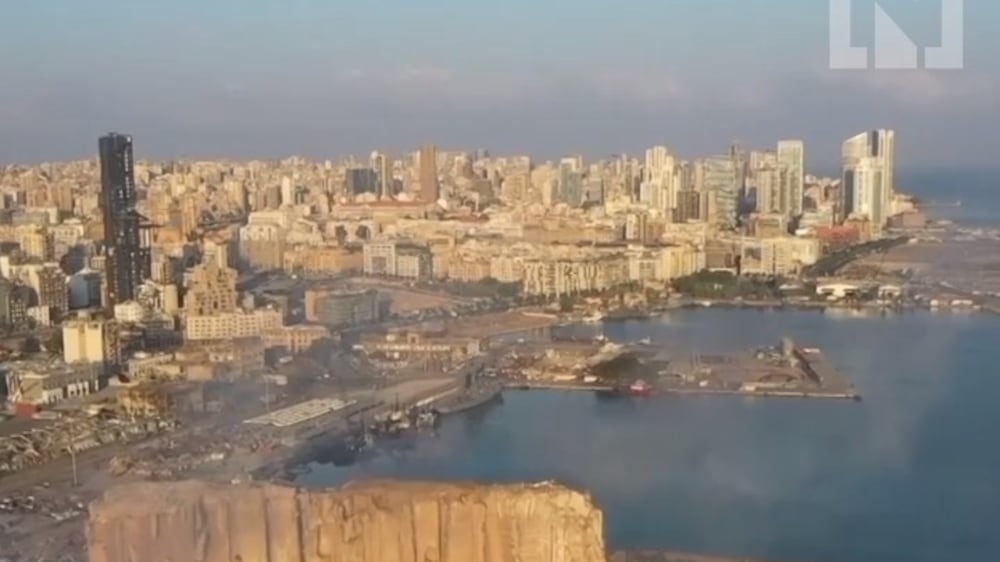
“We are, however, focused on doing everything we can to support our customers and policyholders following this deeply tragic event,” said Lloyd’s of London, another leading reinsurer.
One commentator for the Artemis insurance intelligence company said it would take some time to calculate the broader financial impact.
“A low billion US dollar industry loss won’t be significant for anyone in the industry, with the local impacts to insurers likely the most detrimental to the reinsurance sector,” he said.
The commentator said the deep market was proving its worth to homeowners and others around the world.
“This once again highlights the need for greater penetration of insurance into poorer economies of the world,” he said.
